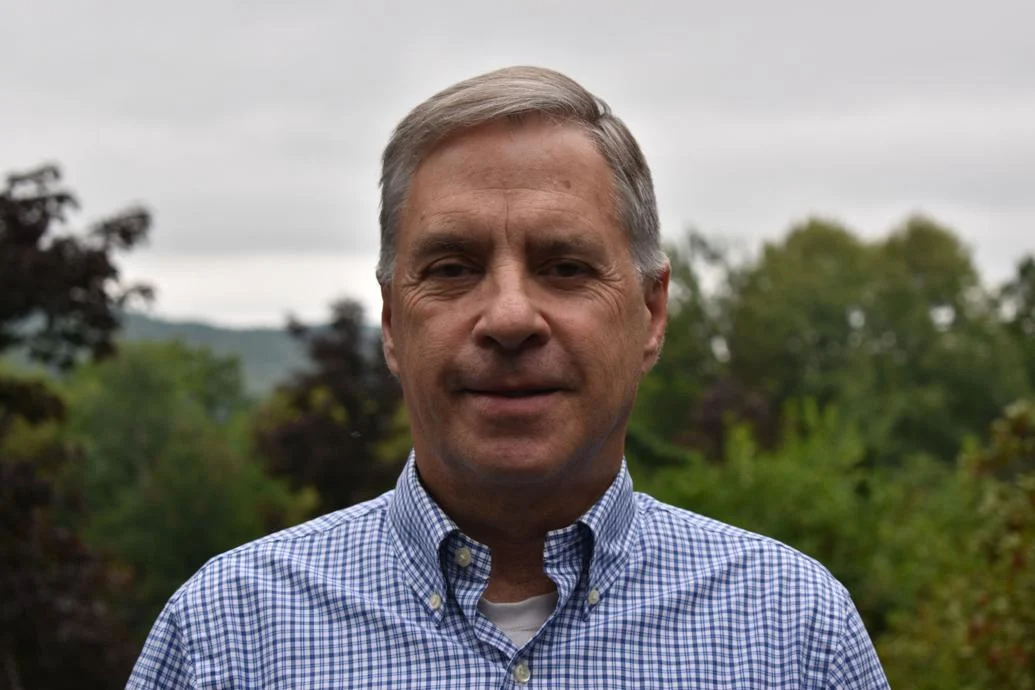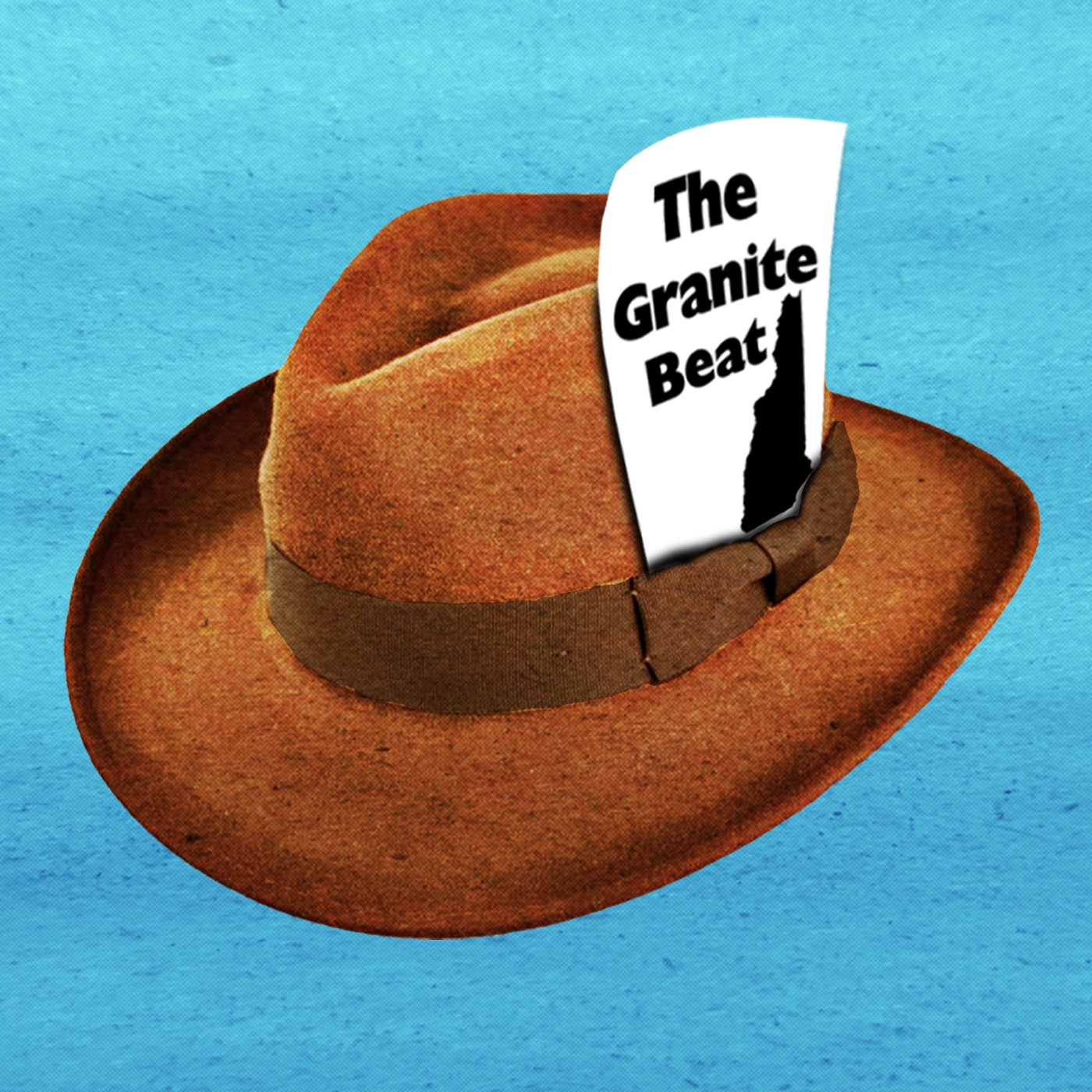Keene Sentinel Statehouse reporter Rick Green reflects on legislative coverage and the changing media landscape
By Adam Drapcho and Julie Hart, Laconia Daily Sun
Listen to the full interview on The Granite Beat podcast and subscribe wherever you get your podcasts
On this episode of The Granite Beat, hosts Adam Drapcho and Julie Hart speak with State House reporter Rick Green. Currently a reporter for The Keene Sentinel, Rick previously spent nearly 20 years with the Associated Press covering Oregon and Oklahoma before coming to New Hampshire where he worked for The Laconia Daily Sun and The Granite State News Collaborative.
This transcript has been edited lightly for length and clarity.


Adam Drapcho:
Are New Hampshire readers any different in the way they respond to your work than they were in other states?
Rick Green:
Well, it may just be a sign of our times, but I noticed more in recent years heavy political engagement by the readership. I noticed that at The Sun, and just kind of in general, people are quite interested in what they view your politics as. I've always considered myself a flaming moderate, and people ask me at times, after I ask them a question, “What are your political leanings? And I always tell them I'm a reporter, I'm agnostic on that. So that's one thing I've noticed, I'm not sure if it's New Hampshire or people are just becoming more political, and see everything really through that lens more than anything else.
Adam Drapcho:
This is not your first stint as a State House reporter – you covered the Oklahoma legislature having that sort of “flaming moderate” identity, which is an important aspect to protect as a State House reporter. I would imagine that's a challenge to get and keep confidence on both sides of the aisle, that you're someone that couldn't be trusted with their perspectives.
Rick Green:
What I've noticed is that you're gonna get complaints anyway. But if your complaints are from the right AND the left, then you feel like hey, maybe I'm doing something right. You're writing about things that people really believe in viscerally, and they'll look for any nuance where they feel like you may be leaning one way or another. It comes with the territory, so you expect it. But if you are getting feedback from both sides that does, in all seriousness, tell you that maybe you are kind of staying in the middle of the road. One thing you get from people is this idea or, why don't you do more positive and more uplifting kind of news. And we do that, we do profiles and any number of things. But what I always tell people is, you may cover an airport, and 100 planes will land safely, but one will crash and burn. So are you gonna cover the planes that have the safe experience or the one that unfortunately had a calamity? It's just kind of the nature of the business.
Adam Drapcho:
Speaking of the nature of the business, have you found it harder to be a State House reporter given the changing climate – particularly in regards to news media?
Rick Green:
I really enjoy State House coverage, it's amazing how similar the mechanisms of the State House are from one state to the next. You know, there's bills that start in one chamber and cross over to the other. There's always the question of whether the governor is going to sign the bill or not. There's moving through the committee process and the public input. There's a lot that's similar at the State House. And there's always so many things to write about, because there are hundreds of bills that are filed, you can kind of pick and choose. And you get to write about the issues of the day that affect people. Right now, legalization of marijuana for recreational use is something that a lot of people are interested in. School choice or school vouchers is another area. Property tax. These are all things that people really care about.
My position was started as kind of a crowdfunded position, and then this year is part of the regular newspaper staff. So it began with a desire, I think, to have a return to some of the hard news that maybe has become less frequent in some newspapers. I think newspapers just in general have retrenched and have struggled to find a way to stay economically feasible. And so one of the first things a lot of them cut might be the State House because they'll say, you know what, the Associated Press is covering the statehouse so why do I really need to do it? And you get these situations where even papers who are in the capital of a state are not covering the State House. It’s kind of unusual.
What I tried to do at the State House is to make it relevant to the newspaper readership. I know people care about their property taxes, because New Hampshire is one of the highest property tax rates in the nation. So if I could write about that issue, and if I can make it even more particular to my readership, I feel like people are going to care about that. You can really localize stories even when you're covering statewide issues, and I think that's the argument is that if you can do compelling journalism, and if you can get on the front page, and if you can bring things that people aren't otherwise covering, then I feel you're relevant.
Adam Drapcho:
I wanted to ask you specifically about cannabis legalization, or at least the the recreational use legalization, which has been become a perennial issue in New Hampshire. The House will pass it every session, and then somewhere along the way it gets stuck or dies or doesn't quite make it to the governor's desk. And the governor has promised over the years that if it does make it to his desk, that's where it would die. What made you decide that this was worth a deep-dive and how did you go about reporting that story?
Rick Green:
There seems to me to be more bipartisanship on this marijuana legalization measure than some in the past, particularly in the Senate. And there's been several new senators elected who are in favor of recreational legalization replacing senators who felt otherwise, so I feel like there's a decent chance that it could pass the Senate. My process was to call as many of the new senators as I could to kind of poll them and see where the numbers are, and right now it seems like there's a decent chance it could pass the Senate. What will happen when it gets to the governor is anybody's guess, but there's talk that he may be interested in a presidential run, and if so, marijuana legalization is tremendously popular, particularly in New Hampshire. So that all factors into it, and it just feels like something people care about.
Julie Hart:
What advice would you give somebody who's interested in starting a career in journalism?
Rick Green:
I would say if you'd like to, you should pursue it. It just depends on the person and how much of a passion they have for it. I'm a firm believer that people should do what they're passionate about. Get with your career office at your university, talk to journalists. There are certainly a lot of people who are still employed as journalists still. Just like in the past, it's not the highest paying job in the world, and sometimes the working conditions aren't the best. But in terms of the colleagues, you'll have the stories you'll be able to tell, the people you'll be able to meet, the pictures you'll be able to take. It's unparalleled. I wouldn't have picked anything else, I really wouldn't have, and I feel like the opportunity is still there for people who want to pursue it.
This article is part of The Granite Beat, a project by The Laconia Daily Sun and The Granite State News Collaborative, of which Laconia is a partner. Each week Adam Drapcho and Julie Hart, will explore with local reporters how they got some of the most impactful stories in our state and why they matter. This project is being shared with partners in The Granite State News Collaborative.
